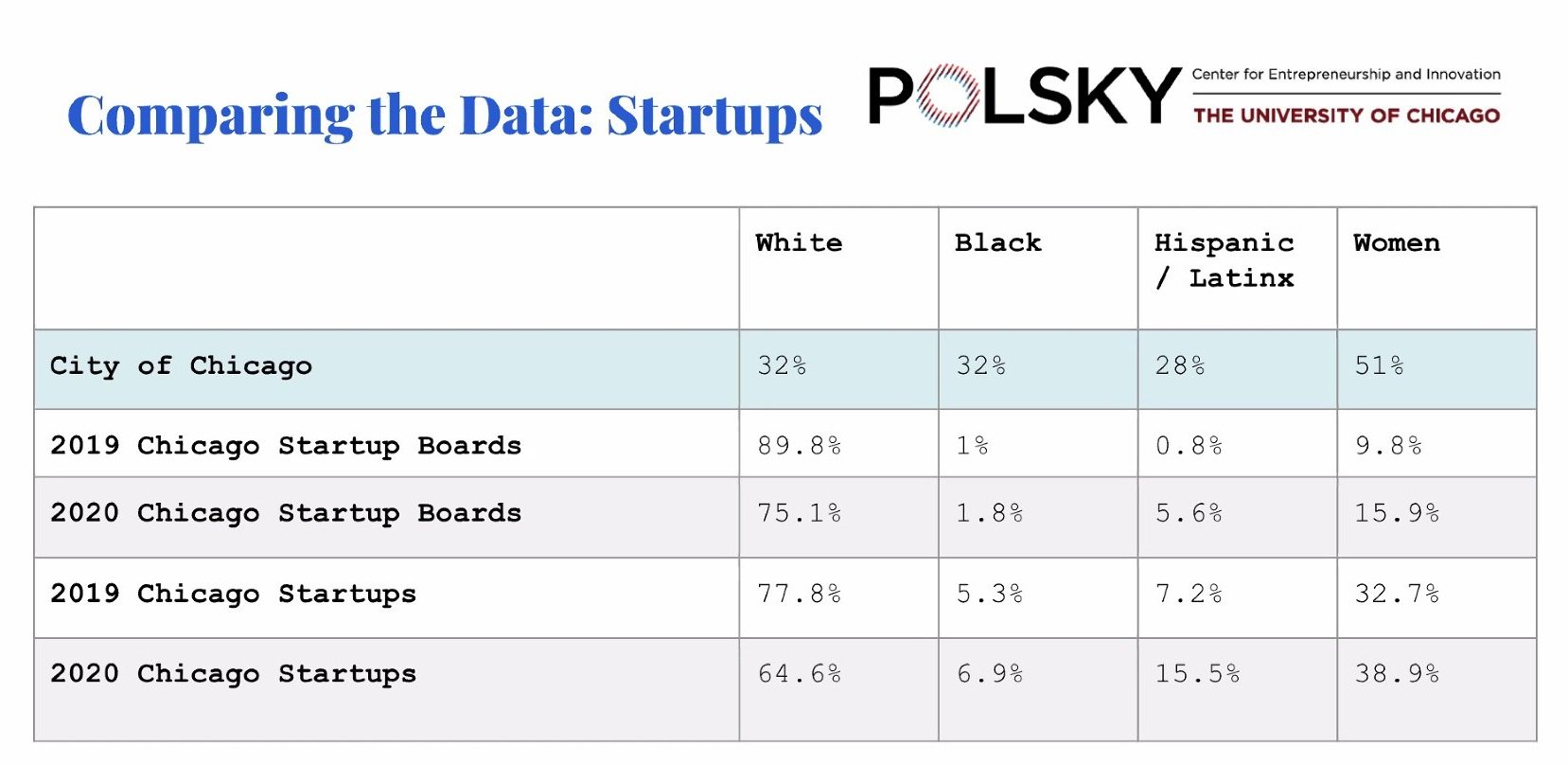Data Shows Chicago Startups Making Progress in Increasing Diversity

The Chicago:Blend board recently provided an update on their recent initiatives, including demographic data collection among Chicago-based VC firms and their portfolio companies. (Image via YouTube).
The Polsky Center for Entrepreneurship and Innovation partnered with Chicago:Blend, an organization dedicated to bringing diversity to the Chicago business sector, to compile data on Chicago’s increasing diversity in startups. Findings were presented in a virtual town hall event on Tuesday, January 12 (view recording below).
Looking at 112 startups, all of which were backed by one or more Chicago VC firms, the data shows an increase in Black and Latinx workers and women in Chicago startups. In 2020, 38.9% of staffers were women, while in 2019 it had been 32.7%. Latinx workers doubled, going from 7.2% in 2019 to 15.5% in 2020. Black workers were 6.9% in 2020, up from 2019’s 5.3%.
Chicago’s venture capital and startup ecosystems have long had difficulty with diversity, equity, and inclusion. Speakers at the event saw the data as proof that the diversity initiatives put forth by Chicago were working.
Founder and board member of Chicago:Blend and director of platform at Chicago Ventures, Lindsay Knight, said, “Looking back at two years of data, we’re happy to see some progress. We launched with a critical question: Where are the major gaps in demographics in Chicago’s VCs and startups? And where do we as VCs have an opportunity and an obligation to enact change?”
Speakers at the event included NFL player Ryan Mundy, founder of the wellness company Alkeme Health; Rodrigo Garcia, Illinois’s deputy state treasurer and chief information officer; among others.
The numbers also showed an increase in diversity among Chicago startup board members. In 2019, 9.8% of board members were women, while 15.9% were in 2020. Latinx board members went from less than 1% in 2019 to 6% in 2020, and Black board members went from 1% in 2019 to 1.8% in 2020.

Other data presented found that the venture capital industry in Chicago was becoming more diverse, as well. In 2018, women were 28% of VC firms, increasing to 32% in 2020. People of color comprised of 19% in 2020 in comparison to 14% in 2018.
“We know that recruiting can be tough,” said Knight, “but we believe in our world, this isn’t a pipeline problem, it’s more of a network or an access problem. We help to create network access and visibility to great candidates or founders, who don’t already have a way in.”